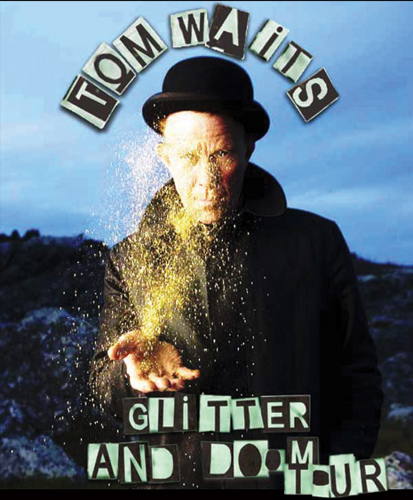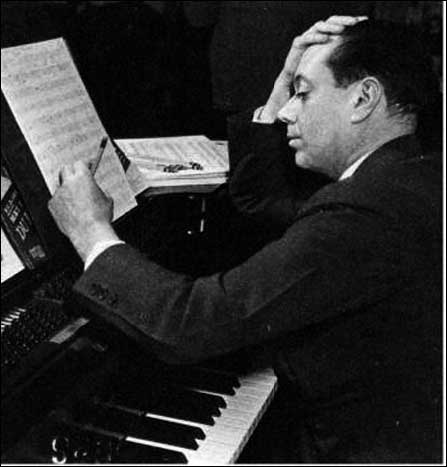For an artist who maintained an album-every-other-year pace for much of the ‘80s, it was with uncharacteristic deliberation that Tom Waits approached releasing records during the 1990s, completing only two full-length albums and largely staying off the stage altogether. But as would be expected, he left a long trail of songs and ideas that he says “fell behind the stove while making dinner,” and the three hours of Orphans give a home to 54 of them, splitting them into three musically themed collections colorfully titled Brawlers, Bawlers, and Bastards.Label: ANTI
[RATING: 3.5]
Videos by American Songwriter
 For an artist who maintained an album-every-other-year pace for much of the ‘80s, it was with uncharacteristic deliberation that Tom Waits approached releasing records during the 1990s, completing only two full-length albums and largely staying off the stage altogether. But as would be expected, he left a long trail of songs and ideas that he says “fell behind the stove while making dinner,” and the three hours of Orphans give a home to 54 of them, splitting them into three musically themed collections colorfully titled Brawlers, Bawlers, and Bastards.
For an artist who maintained an album-every-other-year pace for much of the ‘80s, it was with uncharacteristic deliberation that Tom Waits approached releasing records during the 1990s, completing only two full-length albums and largely staying off the stage altogether. But as would be expected, he left a long trail of songs and ideas that he says “fell behind the stove while making dinner,” and the three hours of Orphans give a home to 54 of them, splitting them into three musically themed collections colorfully titled Brawlers, Bawlers, and Bastards.
As much of Waits’ brilliance has been found in his ability to create albums that are perfectly sequenced to showcase his eclecticism and range as an artist, having these songs separated into three stylistically themed albums can’t help but blunt the impact of each. As such, the junkyard grooves and blues stomps that dominate Brawlers tend to blend together a bit, as there are only so many ways his distorted growl, trashy percussion, and reverby guitar leads can be reassembled around a standard blues chord progression. The broken down gospel of “Lord I’ve Been Changed” breaks up the pace with handclaps and group moans, just as the sickly nightclub strut of “Road to Peace” allows him to explore the apparent hopelessness inherent in the cycle of Palestinian suicide bombers and Israeli retribution with an unflinching frankness that is uncharacteristic for a songwriter so adept with metaphor. Bound to enter his canon of classics, “Bottom of the World” is arguably Waits’ most poignant tribute to the hobo life, with stirring imagery of down-and-out dinners spent under the stars with a cast of greasy characters romanticized with such color and sadness that it almost makes one want to head for the nearest railroad tracks.
In keeping with its title, the Bawlers disc captures 20 examples of the country and folk-tinged balladry that forms the plaintively bittersweet side of Waits’ persona. Recalling his early jazz crooner days, “You Can Never Hold Back Spring” is a classic Waits weeper, full of fuzzy piano chords and sighing trumpet lines, just as “Little Drop of Poison” revisits the dark cabaret leer most recently heard on 2004’s Blood Money. Of course, there’s also the gentle trot of accordion, fiddle, and mandolin on the beautifully lovesick “Widow’s Grove,” a marching gospel dirge on “Take Care of All of My Children,” and a boozy sing-along cover of “Goodnight Irene,” but the majority of the disc stays close to his piano balladeer guise. Again, what the disc lacks is the inclusion of the more energetic material of the Brawlers disc, and the mood quickly grows a bit too somber by the time the pedal steel drenched cover of the standard “Young at Heart” closes the disc.
Though it probably contains the least essential material, Bastards might just be the most fun, full of ghoulishly theatrical performances and sound experiments, disturbing children’s stories and strange monologues, and obscure covers and genre exploration. From the death rattle blues of “Bone Chain” to his piano ballad adaptation of Jack Kerouac’s “Home I’ll Never Be” and his beat-boxing rendition of Daniel Johnston’s “King Kong,” Waits’ range as a performer and ear for the absurd can be most easily grasped on the third disc. Taken as a whole, it doesn’t offer many revelations, but Orphans succeeds in being the sketchbook of a master craftsman, bringing to light a lot of tracks that only reaffirm what we knew about him and rescuing some exceptional songs from being lost “behind the stove” forever.













Leave a Reply
Only members can comment. Become a member. Already a member? Log in.